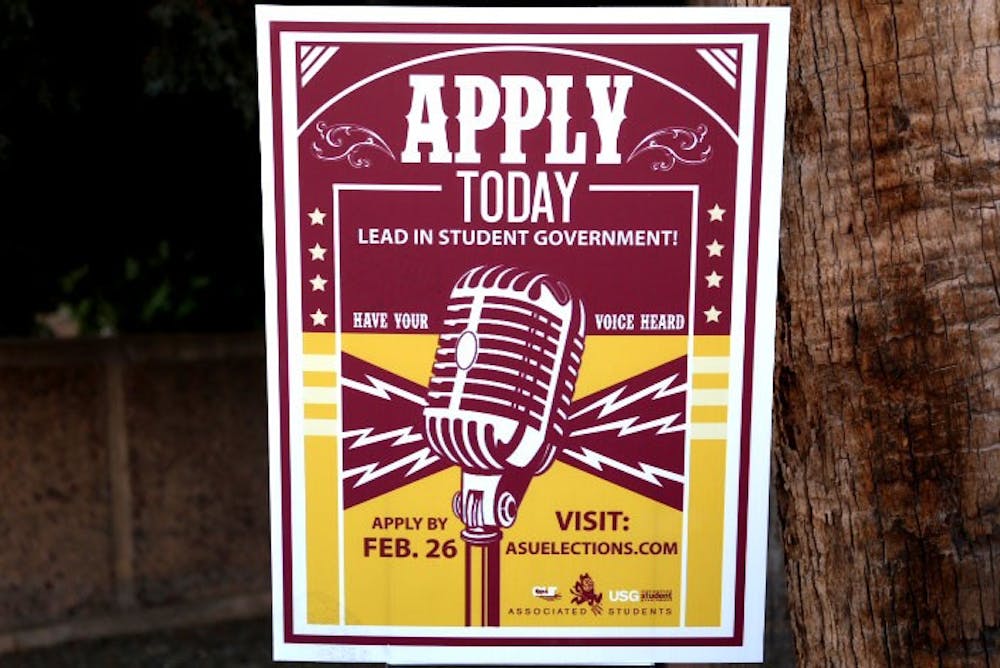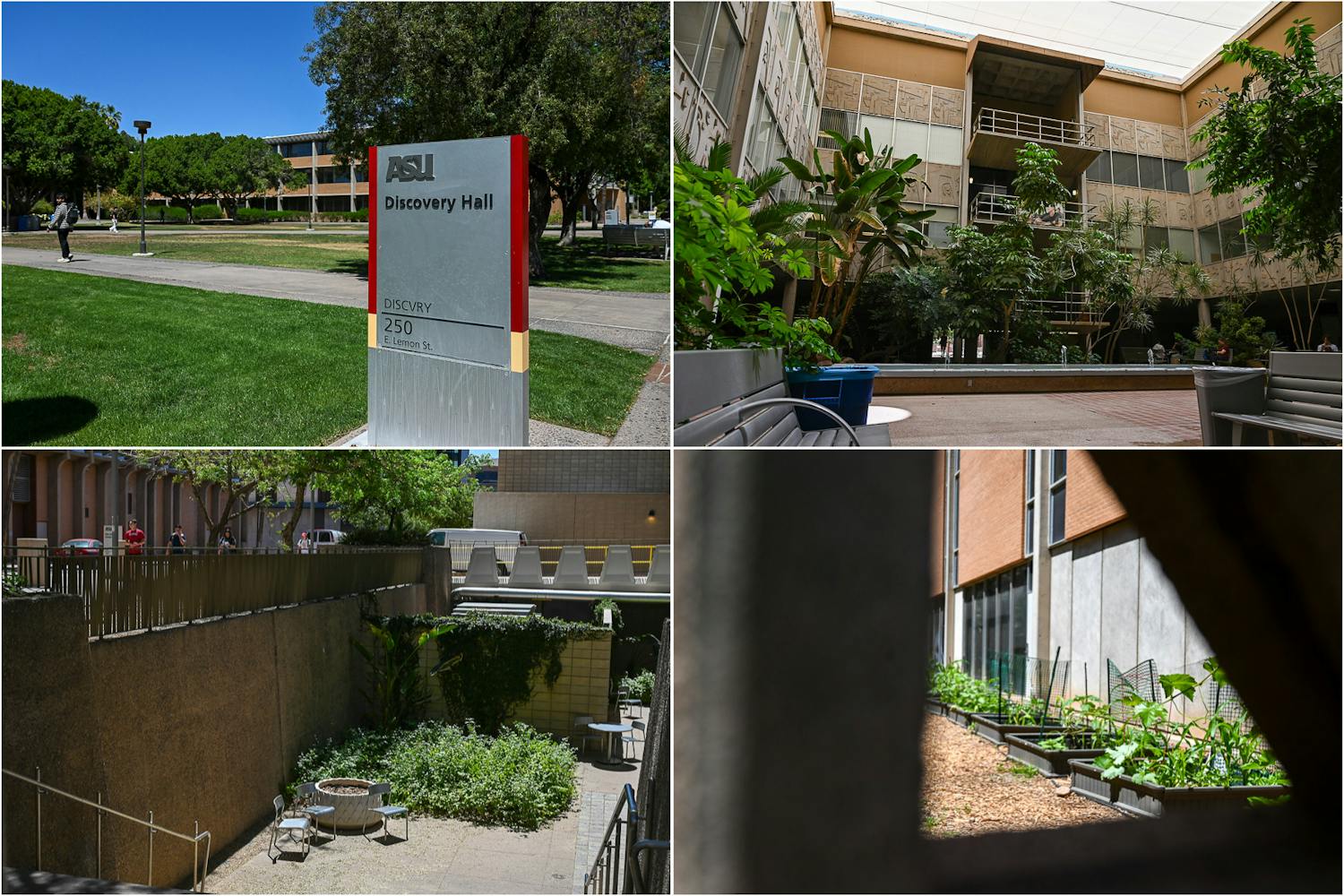It has been two weeks since Undergraduate Student Government campaigning began, and voting opened today. With all of the hype from the presidential primaries, it's easy to find yourself knowing no more now than when USG candidacy announcements were made.
USG elections are a strange phenomenon that occurs every year across ASU. Information from or about the campaigns spreads predominately over social media, and as a result, people often end up in one of two camps: those who are flooded with profile picture changes and event invites, or those who don’t hear about elections at all.
The State Press Editorial Board discussed writing this piece to encourage students to vote, but we quickly realized that would be disingenuous because some members didn't even intend to vote themselves. Rather than urging you to vote and wagging our finger at you, we chose to point out several issues we see in the current system in the hope to incite change.
No one votes
Despite the overwhelming amount of election material shared online, a vast majority of ASU students do not take part in USG elections. A State Press report indicates that only about five percent of Tempe students voted last year.
The lack of student engagement has created a reality where Greek life and large student organizations have the most power in the executive races, because they ensure that their members vote. This in turn creates a scenario where in terms of being elected, it is more important for a ticket to appeal to Greek life and other organized bodies than it is to appeal to the entire student population.
Executive ticket mudslinging is out of control
It goes without saying that USG elections should be clean. Any defamation between USG candidates is absurd, and the amount of pure vitriol that has been spewed between the campaigns this year has been shameful.
It is sad to see teams of passionate ASU students who all care about our University stoop so low as to attack one another personally and politically. A system that allows for such tactics calls for a change.
As it stands, elections for the executive tickets take place concurrently to senatorial elections, meaning that whoever is not elected as an executive, will be excluded from holding elected office outright. One consideration to relieve the pressures faced by the executive tickets would be to hold both elections separately so that the most qualified students can continue to represent our University in some capacity, even if they are not elected as an executive.
Not enough students run
Both executive and senatorial races are historically undersaturated with candidates. Most senatorial races are comprised of an almost equal number of positions, as there are candidates. There are even two executive tickets (Downtown Phoenix and Poly) running completely uncontested.
It's hard to call a political race an election if constituents have no choice. It's also difficult to place blame on anyone for not running. But the fact that so few candidates are willing to run for USG positions is indicative of deeper problems with students' perceptions of USG.
USG engagement with students is low
Last year’s voter turnout rate demonstrates that there is a more pervasive problem plaguing USG and the student body: No one cares. USG continually tries to engage students, but time and time again, they are faced with the fact that most students are not willing to engage back. It's going to take work from both students and USG to resolve this issue, and it may require restructuring with how the process itself runs.
Lack of continuity across campuses
The current voter regulations are not reflective of the fact that students are involved on campuses other than that of their declared major. As it stands, students can only participate in the election affiliated with the location of their major.
That means if you a nursing student who lives in Tempe, is fully integrated to the Tempe campus and involved solely in Tempe clubs, you are only able to vote in the Downtown Phoenix election.
Students should have a say in who will be affecting their own personal life the most. When campuses have voter participation as low as five percent, we should be looking into how to include more students in the election process, rather than exclude them.
USG tries to engage students regularly, but these efforts have proven unfruitful. This means that both students and members of USG have room for improvement when it comes to working together to reach meaningful solutions. Ultimately, the system that allows for these issues to be present is flawed and the elections need to be scrutinized.
Want to join the conversation? Send an email to opiniondesk.statepress@gmail.com. Keep letters under 300 words and be sure to include your university affiliation. Anonymity will not be granted.
Like The State Press on Facebook and follow @statepress on Twitter.




